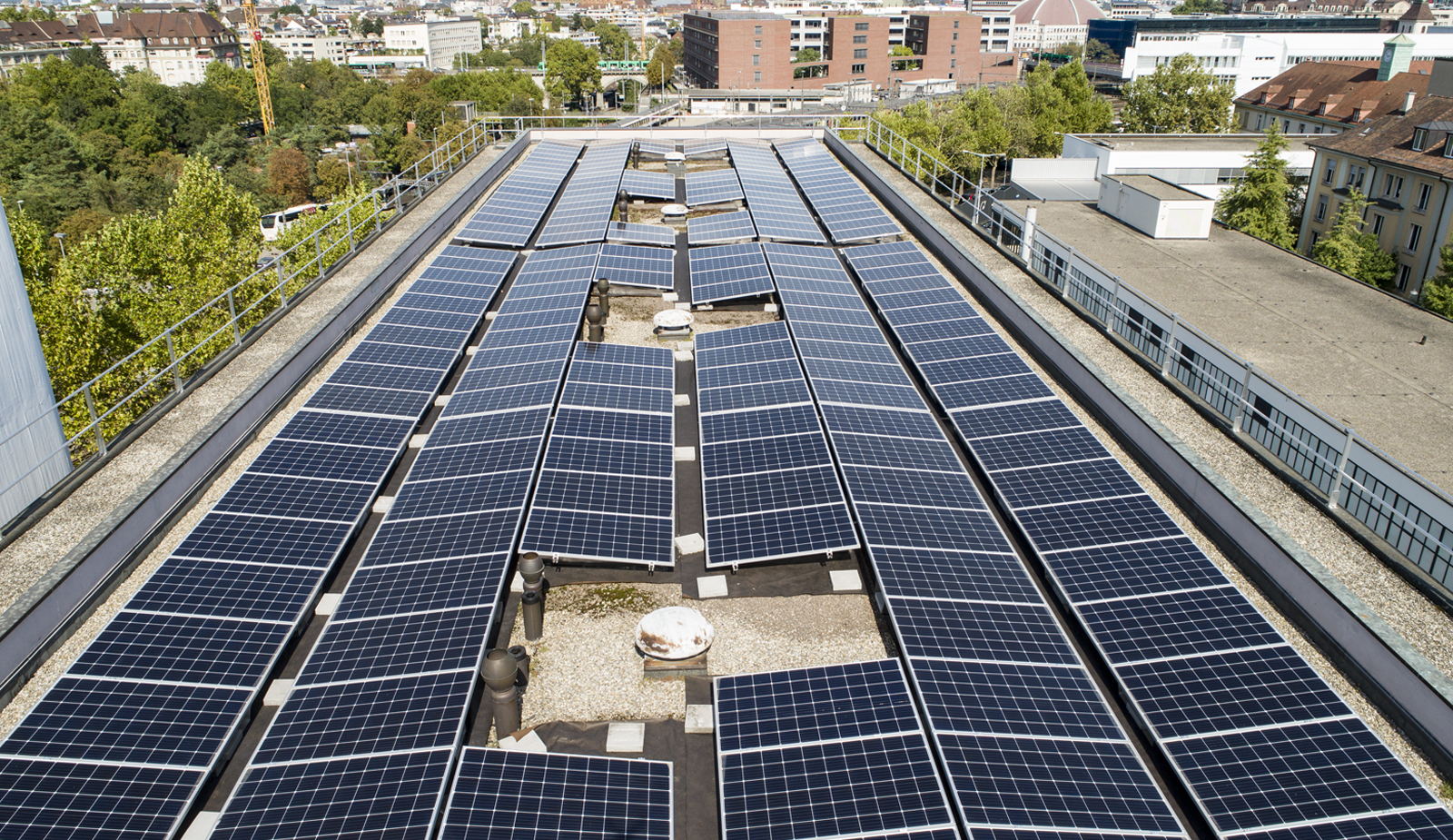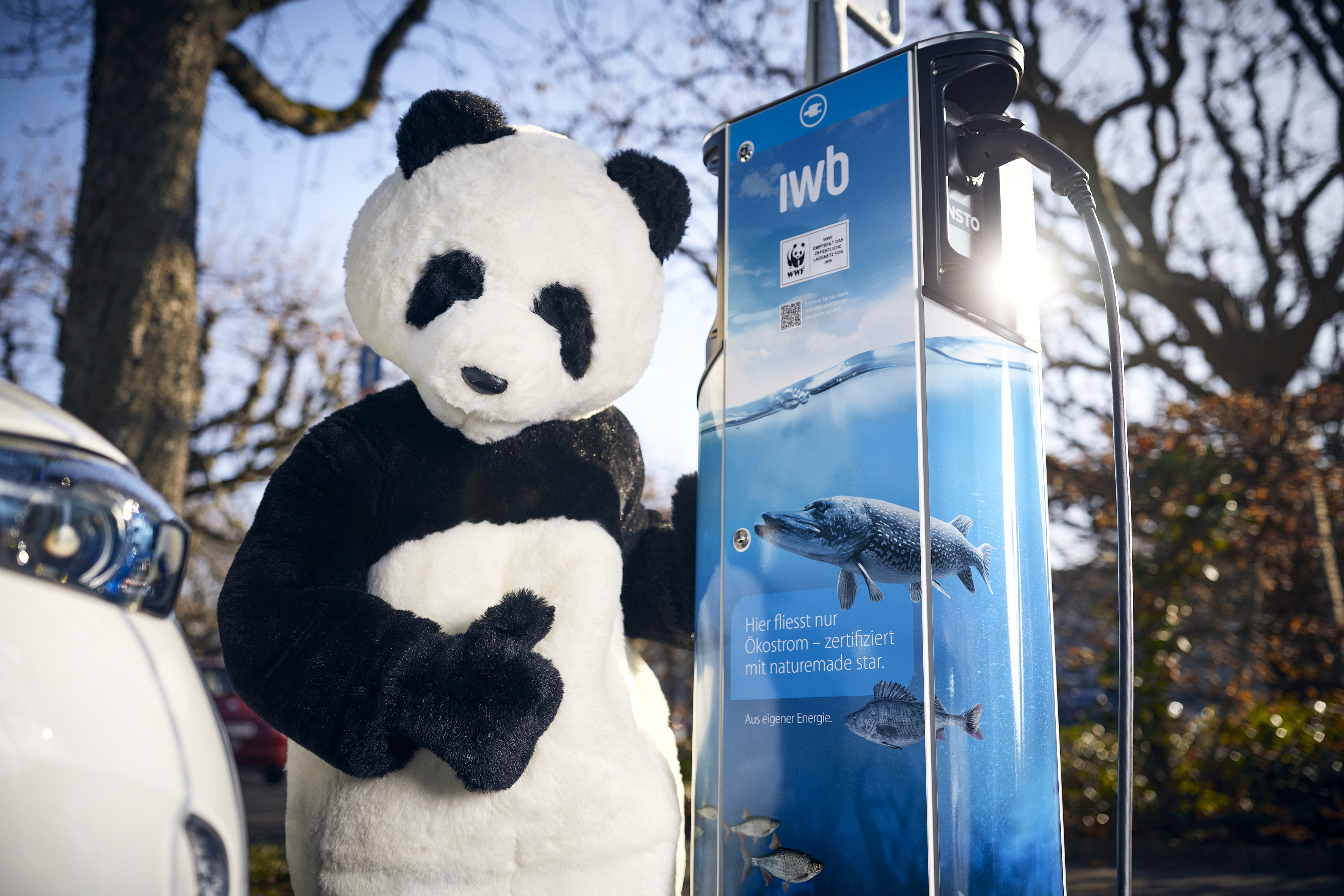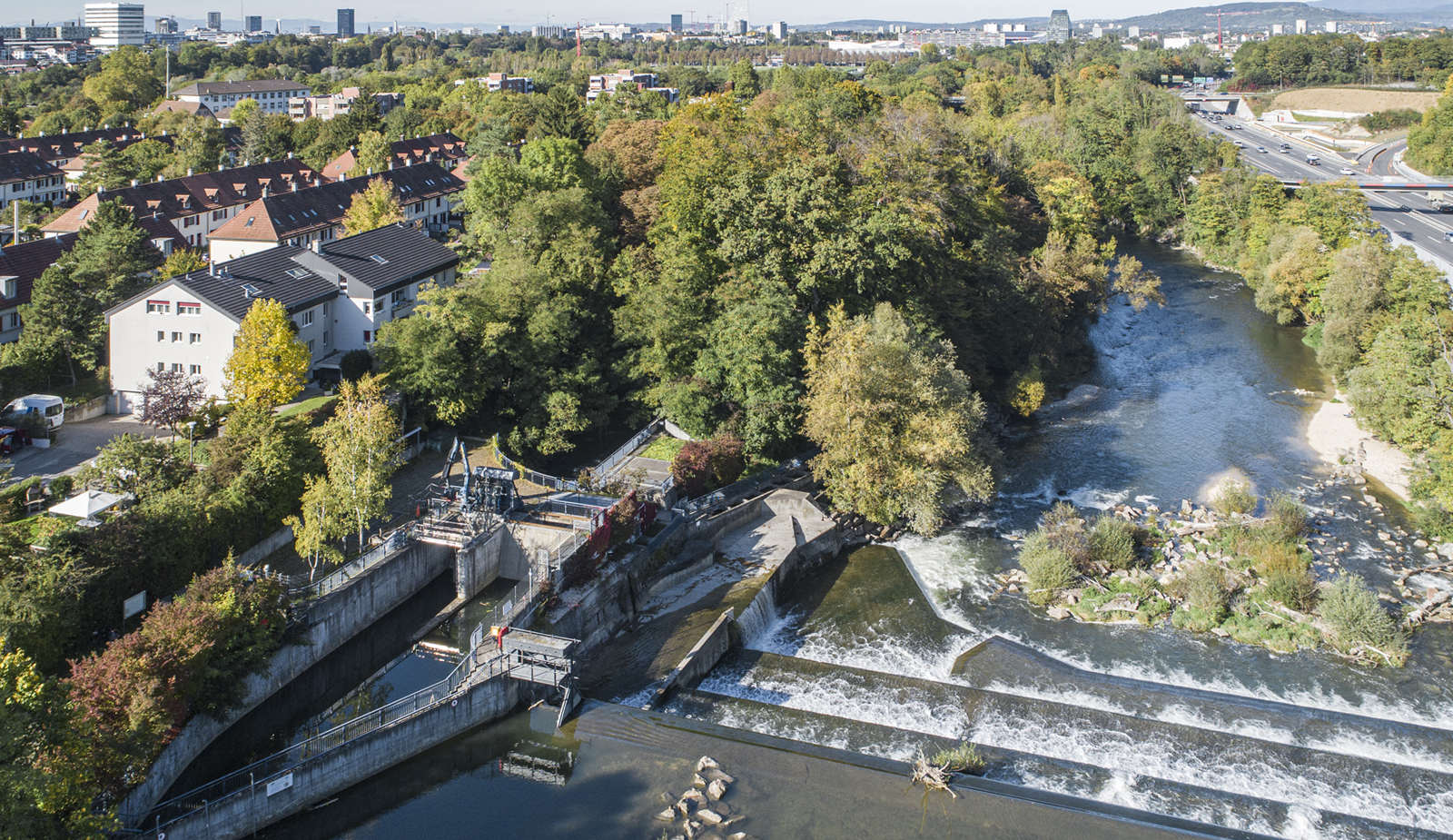Partnership with IWB 2019
The WWF and IWB are partners for renewable and efficient energy supply in the Basel region, which should also be compatible with the protection of nature and animal life.
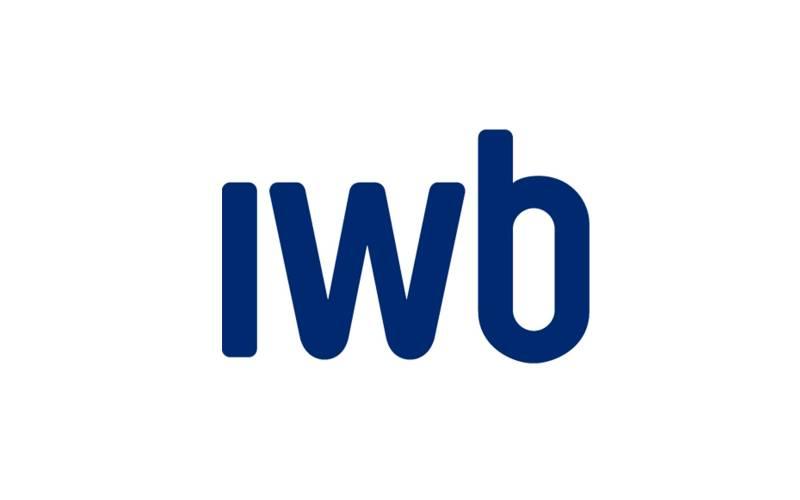
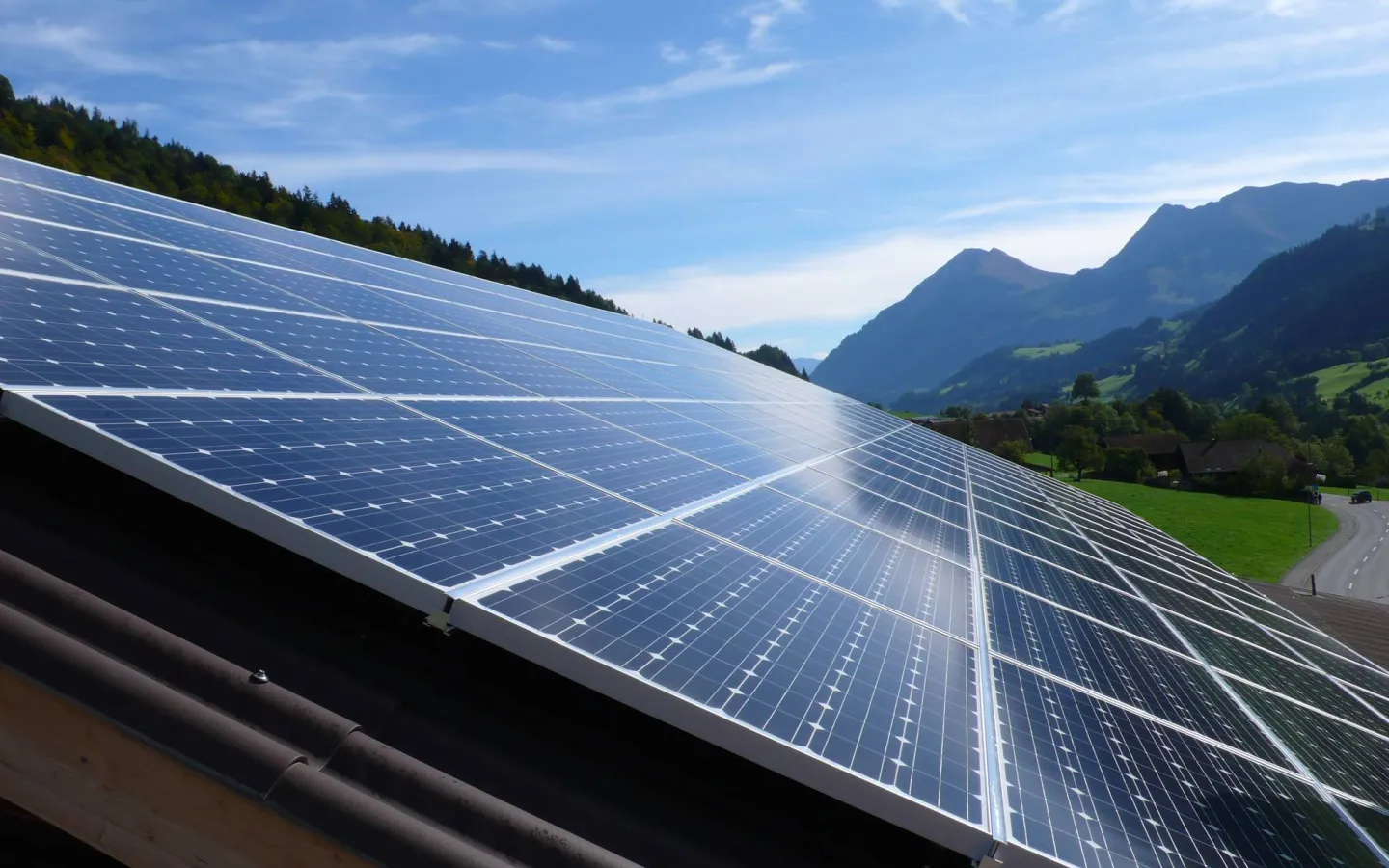
CLIMATE AND ENERGY
IWB and WWF jointly strive to expand renewable and climate-friendly power and heating supply in and around Basel, endeavour towards greater power and heating efficiency, and reaffirm this commitment towards political players and the public. They jointly develop partner ideas for new ecological products and services. Moreover, WWF and IWB combine efforts to ensure fish can more readily pass through the hydropower plants of IWB and to either sustainably maintain or achieve certification of these plants with the naturemade star quality label. This primarily concerns the plants that are fully owned by IWB, but also to other IWB shareholdings. The overall goal is to allow fish better passage and protect the waters.
Reduction of CO2 emissions
IWB strives to reduce the CO2 emissions of its energy sales by 67% from 1990 to 2030. The quantity of CO2 emissions is measured in tons. The scope comprises all IWB business segments, including the sale of natural gas, district heating, contracting, and power.
In 2019, CO2 emissions were reduced by more than 44% compared to 1990, to 694,000 tons.
Expanding photovoltaic power generation
By the end of 2022, IWB strives to expand its domestic photovoltaic electricity generation by 16 GWh compared to 2018. The photovoltaic electricity quantity is measured in GWh.
In 2019, the quantity of domestically generated photovoltaic power amounted to 19 GWh, an increase of more than 46% compared to 2018.
Stronger green energy sales to business customers
IWB strives to acquire two additional key customers by 2022, who at least partially procure green energy (naturemade star-certified electricity or Swiss solar power).
In 2019, no new major customers were acquired.
Reduction of fossil gas sales
IWB strives to reduce the sales of fossil gas by 4 percentage points each year from the baseline year 2018. The quantity of fossil gas sold in GWh is measured and adjusted for climate factors (fossil gas = natural gas as well as imported biogas/power to gas without Swiss climate benefits).
IWB has additionally committed itself to stopping the expansion of gas infrastructure: In the City of Basel, IWB does not plan to install any new gas connections — except for those cases in which the canton has issued an exemption permit. In Basel-Country, IWB pledged to refrain from realizing any new gas connections beyond the existing supply area and from investing in ad campaigns to gain new customers for its natural gas.
IWB fell just short of reaching the reduction target in 2019. A reduction in sales of fossil gas of 3.76 percentage points compared to 2018 was realized.
Comment: IWB was very close to reaching this target. For next year, IWB expects increased reductions, with the legal requirements for Basel-City in place from April 2020. When it comes to the larger supply area, IWB is currently in talks with the municipalities surrounding Basel-City to push the decarbonization of the heating supply there as well.
- Gas connections realized by IWB in Basel-City without a cantonal exemption permit: 0
- Gas connections realized by IWB in Basel-Country beyond the existing supply area: 0
- Budget for ad campaigns for natural gas: CHF 0.–.
Improving energy efficiency
IWB strives to reduce the energy consumption of its end users with a consumption of less than 500 MWh/year in the grid area by 1.5% per year (corrected for climate factors, number of end customers, number of heat pumps, and the development of electric mobility, averaged over the period from 2019–2022) compared to the average annual consumption in the period from 2013–2015. The energy consumption of end customers with a consumption < 500 MWh/year is measured in GWh (reporting date 31/12/2015).
In 2019, IWB end customers reduced their energy consumption by 2.3% over the previous year (absolute actual figure 2019: 460 GWh).
Improving heating efficiency
IWB strives to reduce the heating consumption of end customers in its supply area by 2% per year (corrected for climate factors, averaged over the period from 2019–2022) compared to the average annual consumption in the period from 2013–2015. From 2016–2018, there was a binding average annual reduction of 0.5%. The heating consumption of end customers in the IWB supply area is measured In GWh.
In 2019, IWB end customers increased their heating consumption by 1,6% of the average heating consumption year-on-year (absolute actual figure 2019: 2207.5 GWh).
Comment: The target value for 2017 can be determined in 2019 and was achieved. Due to the billing process, the data for 2018 will not be available before March 2020.
